Epoxy Countertop Heat Resistance: Everything You Need To Know
Many things can be said about epoxy countertops. However, when it comes to comparing epoxy and quartz, we would say the latter is more resistant to heat than the former. In this post, we explore an issue that continues to troubles many homeowners, especially those who would wish to install epoxy flooring on their kitchen countertops. If you frequently check into only flooring forums, you must have noticed that epoxy countertop heat resistance is a debate that refused to go away.
Thus, to help with resolving every misgiving you may be harboring about epoxy, and also to answer the question, are epoxy countertops heat resistance, read on to learn more.
What is epoxy?
First off, let’s begin by answering the big question: What is epoxy. If you are a flooring novice, we owe you a much-detailed explanation of epoxy flooring. But to someone who knows quite a lot about flooring, a simple yet helpful definition is that epoxy is a flooring material that constitutes a mixture of several layers of resin and a hardener. When installing epoxy on your kitchen countertop, the rule of the thumb is that it should be at least 2 millimeters thick. It is especially the case if you are looking to realize more resistance to scratch and longevity with epoxy resin countertop heat resistance.
Epoxy and exposure to heat: Everything you should know
Let’s quickly mention that the process of installing epoxy countertops does not involve heating. It explains why quartz is more resistant to heat. However, when it comes to exploring the effects of heat on epoxy, there are notable caveats. You can get inspired by interior design and epoxy countertops ideas at Caesarstone. In the end, you should make the right decision.
Well, on answering the big question, is epoxy countertop heat resistance, a straight-shooting answer is yes. However, epoxy is not heatproof. If you leave a hot pan on your epoxy kitchen countertop, chances are high that it will get damaged. Thus, experts advise that you should always use hot pot trivets to guard against heat damage on epoxy countertops. Things would get worse if you put a dyed hot substance on the countertop because it will become stained.
High temperature and heat resistance epoxy
There are several variants of epoxies, something that often makes it difficult for homeowners to choose the right one for the kitchen countertops. It is, however, noteworthy that if a selection does not boil down to hardness and strength, resistance to heat becomes a critical consideration.
With epoxy countertop heat resistance, there is little to worry about, especially if you are looking for longevity. Epoxies that are designed to resist heat can withstand very high temperatures.
Testing epoxy for heat resistance
A further explanation of epoxy countertops, especially their resistance to heat boils to testing them at high temperatures. Now, to help you answer the question, are epoxy countertop heat resistance, a simple experiment is testing yours beyond curing temperature. Most epoxies will get damaged by heat beyond 135 degrees, which is why experts advise against exposing your epoxy to excessive heat.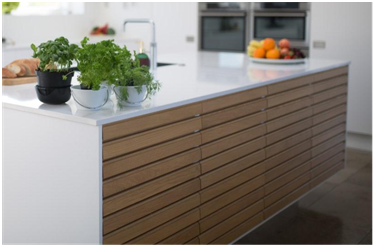
Unless you have a quartz countertop whose heat resistance to heat well knows, do not run the risk of placing a hot pan on epoxy. Instead, use placemats or coasters to cushion your epoxy counter against hot pan or any other cooking ware.
The understanding behind epoxy curing temperature
While you can choose a befitting epoxy from the market, epoxy resin countertop heat resistance presents another dimension of kitchen décor. A notable caveat is that epoxies that are resistant to heat and high temperatures were designed to withstand heating conditions that may affect the proper curing of an epoxy countertop.
Take note that curing is a process in the making of an epoxy counter. It involves the application of heat to give your epoxy countertop desirable characteristics such as resistance to scratch. Moreover, curing epoxy surfaces can withstand spillovers such as oil, juice, and stains.
Heat resistance and hardness
With heat resistance, a question of epoxy hardness always pops up. The truth is that epoxy surfaces are hard hence resist most types of scratch or abrasion. Epoxies that have been subjected to high-temperature curing are, therefore, more likely to withstand heat. However, if you ask any home décor expert about the best countertops, quartz remains the most popular choice among most homeowners.
The Bottom Line
In the end, and line with the question is epoxy countertop heat resistance, the answer remains affirmative. But to protect your countertop from damage while also aiming at its longevity, always use placemats or pans with trivets. It is because epoxy in all its goodness is not heatproof.

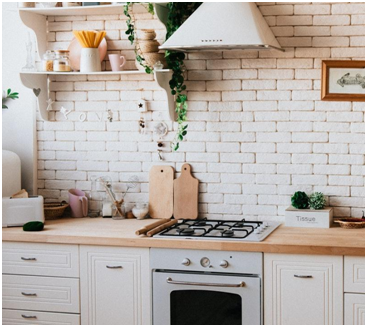

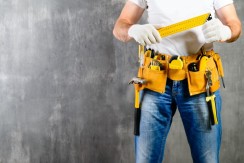

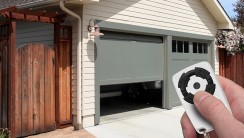
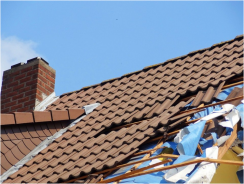





Author
Homesgofast com
Homesgofast.com is an international real estate portal and news source for Google news. Publishing international real estate, finance, homes and travel-related news and blogs for a targeted audience since 2002. Each news item is circulated to thousands of potential readers each day and is also available to the millions of people who sign up for Google news alerts. Find homes offered for sale and to rent direct from owners and some of the best real estate agents from over 35 countries